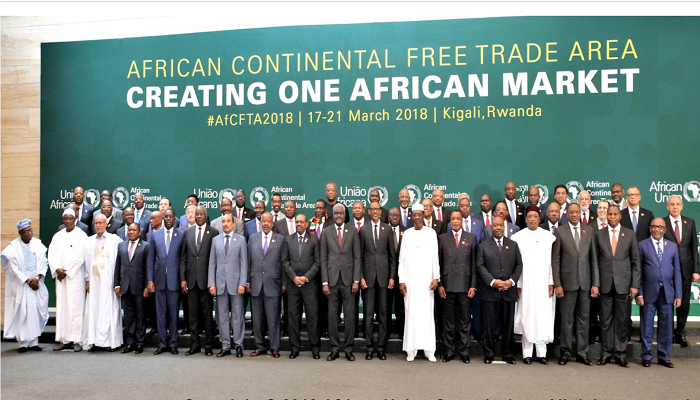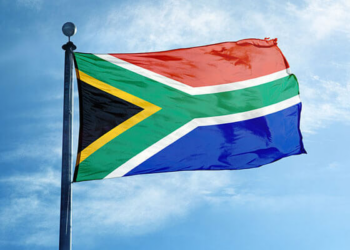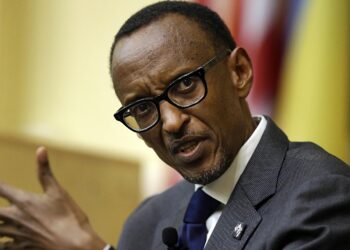On 22 March 2018 in Kigali, Rwanda, Heads of State of forty-four African countries, gathered to sign the African Continental Free Trade Agreement (“AfCFTA” or “the Agreement”), the landmark agreement which amongst others aims to liberalize trade across Africa.
The Nigerian President was among eleven Heads of States who did not sign the agreement, citing the need to consult widely before committing the country to an agreement with significant ramifications on its economy
It would be recalled that Nigeria also passed up the opportunity to sign the Economic Partnership Agreement (“EPA”) between the European Union (“EU”) and the Economic Community of West African States (“ECOWAS”), also citing the need to consult widely.
The growing pattern of avoiding free trade agreements (“FTAs”) on the basis that wider consultation is needed is worrying for a country that aims to increase the welfare of its people and diversify from an oil-centric economy.
If Nigeria’s reason for avoiding FTAs is the harm they would do if cheaper imports are allowed into its market, what about the harm such avoidance would do to consumers who earn the minimum wage and would be better off with cheaper imports or export manufacturers who need newer markets for survival or growth?
Based on examples from developed nations, FTAs are critical for economic growth and Nigeria should be seeking bilateral or multilateral FTAs that are strategic to its economic growth. Should Nigeria have signed the AfCFTA? Yes, if in the present form they are consistent with a clear and robust long-term trade strategy! But shouldn’t they already be if we were from the outset, party to negotiating the Agreement? What are the popular arguments against Nigeria’s participation in the AfCFTA (or FTAs) and what is my view on these arguments?
The uneven competition argument
Opponents of the AfCFTA have argued that gaping infrastructural deficits (i.e., perennial electricity shortage, high cost of capital, poor logistics landscape etc.) and uncertain business landscape, make it impracticable for Nigerian manufacturers to compete on even terms with their counterparts in other jurisdictions. They specifically argue that open borders would lead to the collapse or relocation of local manufacturers. Whilst this argument is valid, it may not tell the whole story
Open borders would lead to the availability of cheaper inputs for local manufacturers who would otherwise pay import duties and taxes on these inputs. Cheaper inputs mean cheaper production costs and cheaper production costs potentially allows local manufacturers compete better with their foreign counterparts.
Additionally, local comparative advantages in some sectors would allow some local manufacturers perform better than their foreign counterparts in a liberalized export market that would grow from the circa 186million population of Nigeria to the circa 1.2billion population of Africa. Improved exports allow local manufacturers generate more revenues to cover fixed production costs.
Opponents would argue that benefits from cheaper inputs and newer markets do not counteract the effect of the infrastructural deficit and uncertain business landscape. However, if this were true, the appropriate reaction should not be the avoidance of FTAs but a strategic response in line with a clear and robust trade strategy. For instance, how can Nigeria obtain the benefits of the FTAs whilst protecting its fragile or infant industries?
To begin with, AfCFTA does not intend to liberalize all commodities. Only 90% of recognized commodities would be liberalized under AfCFTA, meaning that Nigeria could decide what industries or products it considers fragile and ensures they are effectively protected. Secondly, Nigeria could ensure its manufacturers are properly enabled by resuscitating or ensuring implementation of strategic sectoral incentives.
The market access argument
Opponents of the AfCFTA have argued that the market access rules as currently drafted, would make Nigeria the prime candidate for dumping goods. Specifically, they argue that commodities originating from non-AfCFTA signatories would easily find their way, duty and quota-free into Nigeria (via simple processes like labelling, bottling, bagging etc.) if jurisdictions where they originate have free trade agreements with an AfCFTA signatory.
As a case in point, opponents have pointed to the ECOWAS Trade Liberalization Scheme (ETLS) (i.e., ECOWAS’ free trade agreement) where commodities from the nonECOWAS Member States allegedly flood the Nigerian market under the guise of products originating from the ECOWAS region. Whilst this argument is valid, it also does not tell the whole story.
The rules of origin (RoO) as currently drafted do not allow simple processes like labelling, bottling, baggingetc., to attain originating status unless the RoO is not properly evaluated or applied by the relevant authorities. The real issues here are monitoring, enforcement and technical competence; issues Nigeria must address vide shrewd negotiation and not the total abandonment of the AfCFTA.
Nigeria has arguably the largest economy in Africa and with a population of about 186 million people (projected to cross the 300 million mark in 2050, becoming the third most populous nation in the world), we must be proactive and begin to define the narrative in Africa.
Nigeria must, therefore, think long term and define a trading strategy. That is, identifying and leveraging where she has comparative advantages; what the industry value chains are; what she should import and in what form; what she should export and in what form; what industries she must protect; what industries she must develop etc. These are some of the considerations that must drive Nigeria’s approach to trade.






















